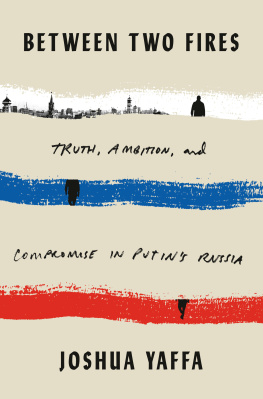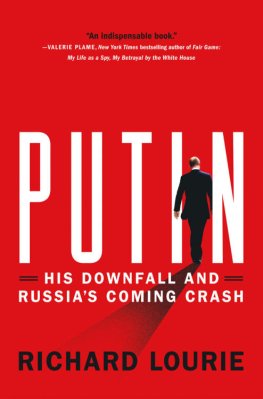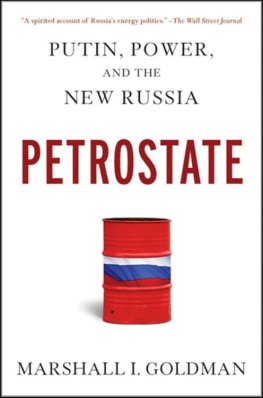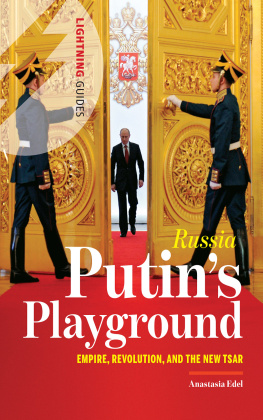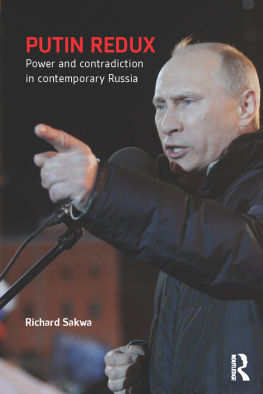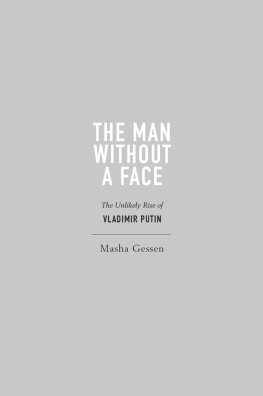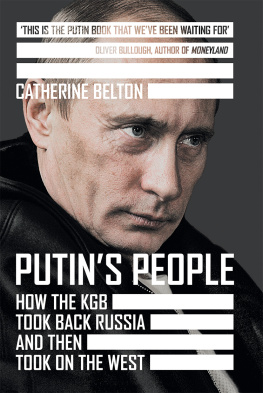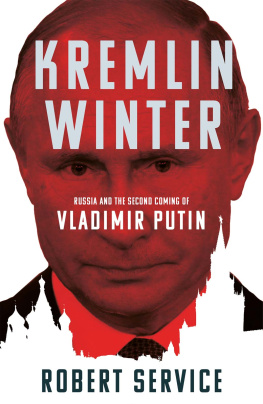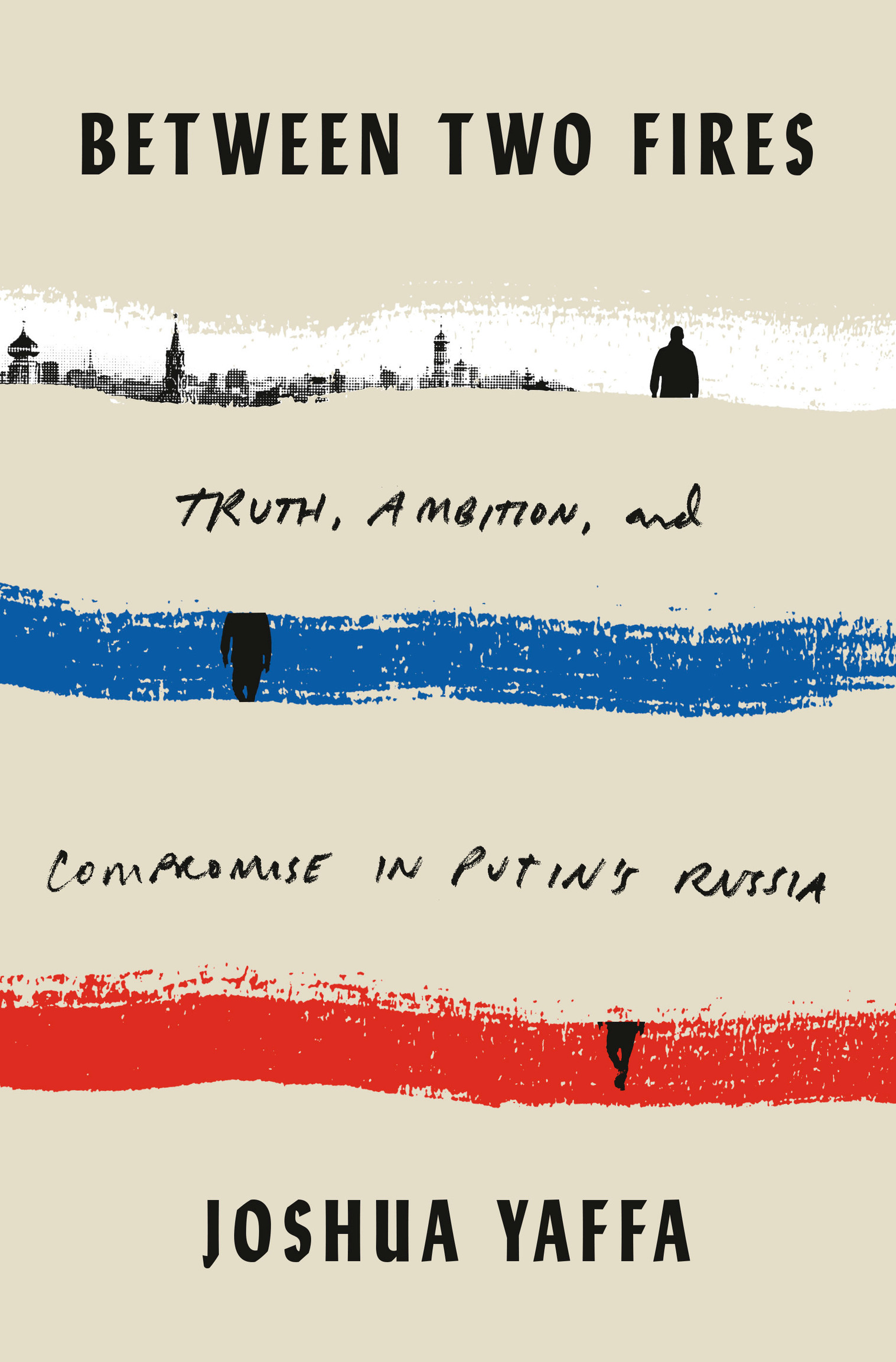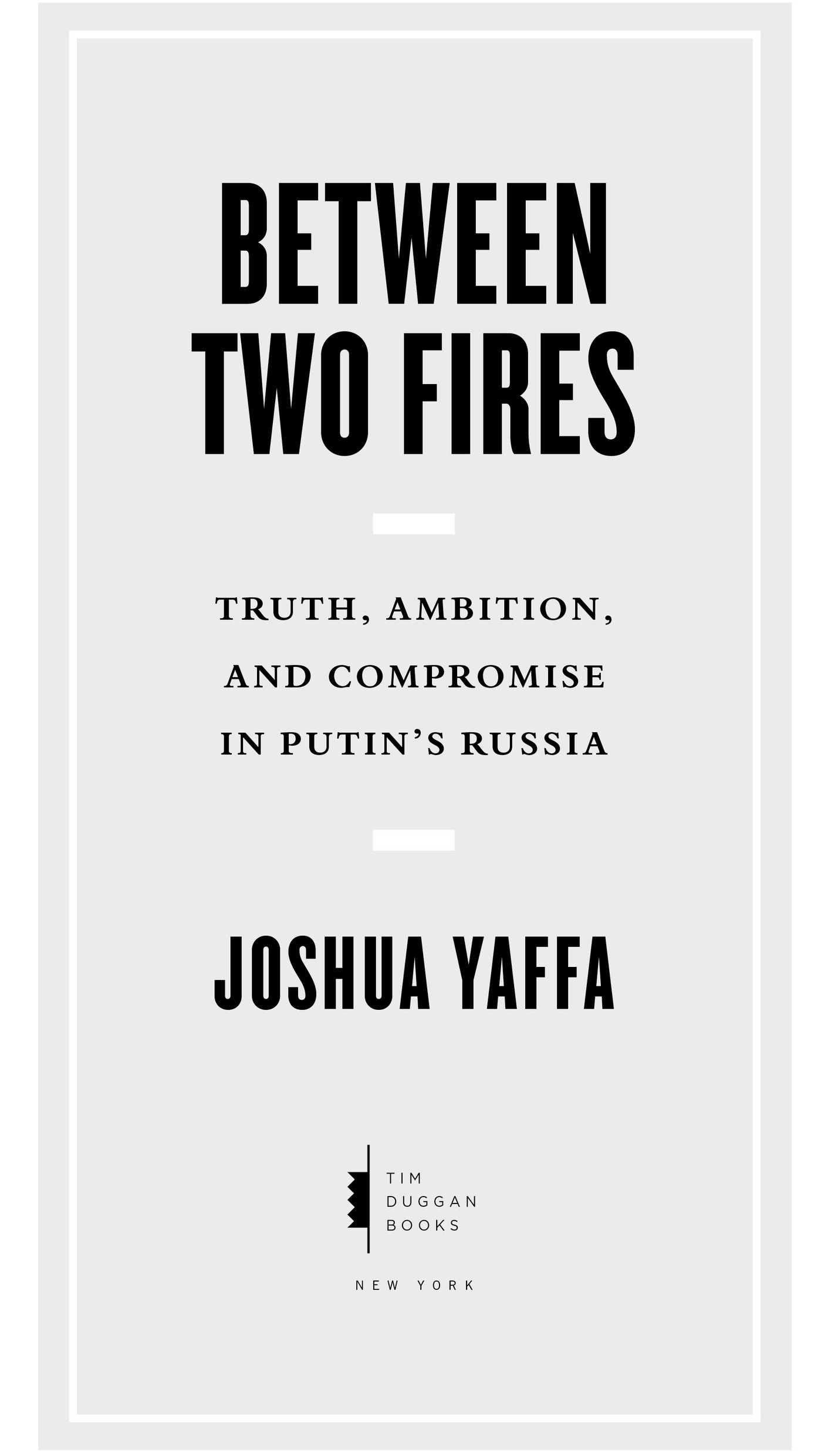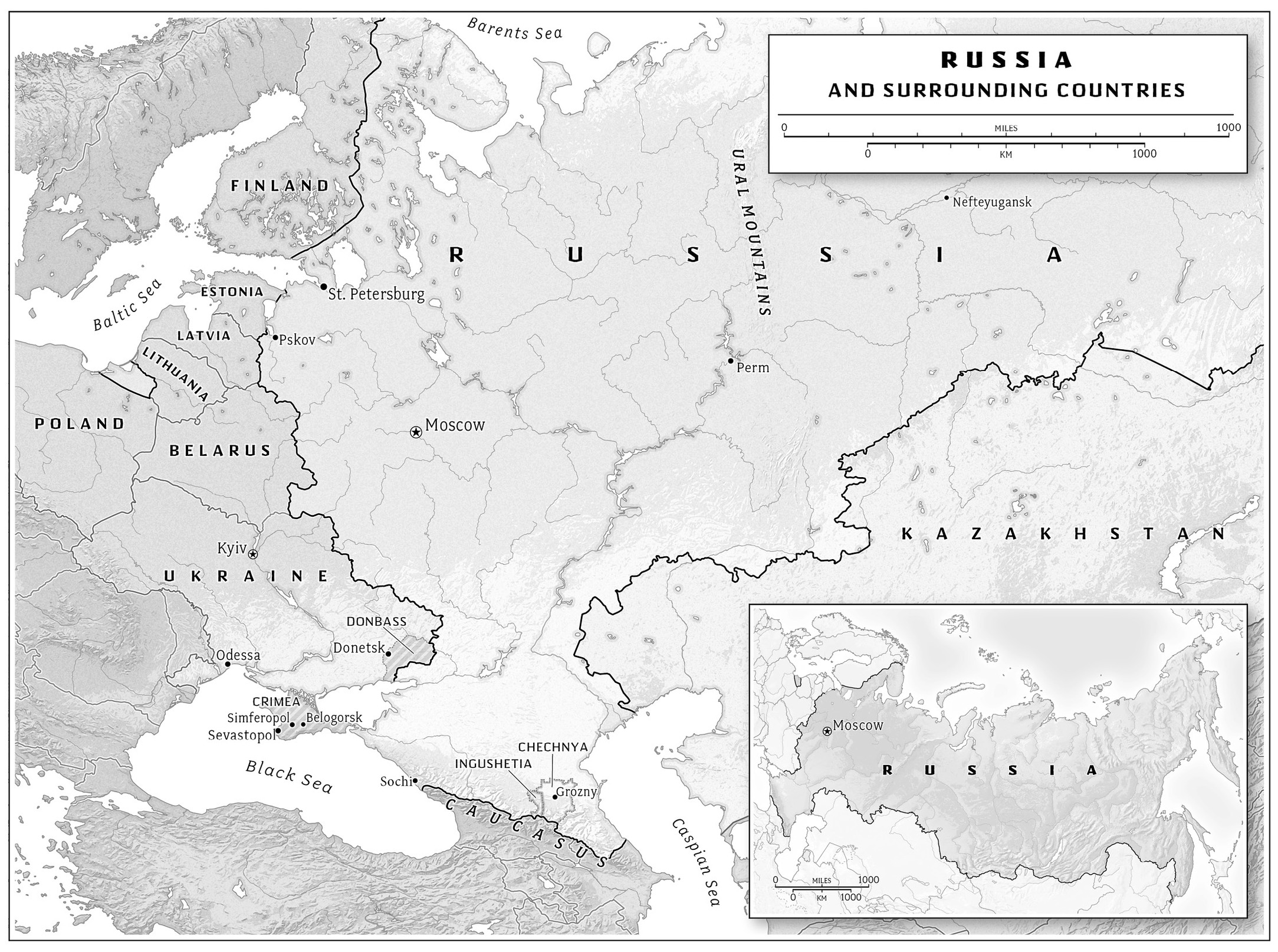Map copyright 2020 by David Lindroth Inc.
All rights reserved.
Published in the United States by Tim Duggan Books, an imprint of Random House, a division of Penguin Random House LLC, New York.
T IM D UGGAN B OOKS and the Crown colophon are trademarks of Penguin Random House LLC.
N AMES: Yaffa, Joshua, author.
T ITLE: Between two fires / Joshua Yaffa.
D ESCRIPTION: First edition. | New York : Tim Duggan Books, [2020] | Includes bibliographical references and index.
I DENTIFIERS: LCCN 2019025918 (print) | LCCN 2019025919 (ebook) | ISBN 9781524760595 (hardcover) | ISBN 9781524760618 (ebook)
S UBJECTS: LCSH: Putin, Vladimir Vladimirovich, 1952 Public opinion. | Public opinionRussia (Federation). | Political cultureRussia (Federation). | PresidentsRussia (Federation)Election. | Russia (Federation)Politics and government1991
C LASSIFICATION: LCC DK510.766.P87 Y34 2020 (print) | LCC DK510.766.P87 (ebook) | DDC 947.086/2dc23 LC record available at https://lccn.loc.gov/2019025918
PROLOGUE
THE WILY MAN
In the winter of 1987, Yuri Levada stumbled upon a tantalizing opportunity. Levada, then fifty-seven, with a gentle face and a thin dusting of white hair, was a sociologist whose very field of interest had long relegated him to the margins of the academy. For decades, Soviet authorities dismissed sociology as bourgeois pseudoscience. Official doctrine posited that essentially all one needed to know about society was contained in the class-based system of Marx and his notion of historical materialism. But in the mid-eighties, the rise of Mikhail Gorbachev and his policy of perestroikaa rethinking of the Soviet economy involving an opening of the countrys political and civic culturecreated an opportunity for Levada and a small number of like-minded colleagues.
Levada was known to be honest and sincere, with an alert mind that stood out among the gray, dull plodders who dominated Soviet academic circles. He was certainly no dissident: he existed within the system, even if he never penetrated its inner realms, and his basic decency and outsize intellectual aptitude set him apart from those who did. He and a circle of friends and onetime graduate students spent years gathering after hours in the spare conference rooms of scientific institutes, discussing taboo questions of sociological theory and the countrys sporadic outcroppings of avant-garde theater and poetry.
But now they were given control over a newly created body, the All-Union Center for Public Opinion Research, VTsIOM for short, the first large-scale polling and social research center in the countrys history. Gorbachev and his reformist allies in the politburo were aware that the Soviet system, if left unchanged, would soon reach its breaking point. And they were also aware of how little they understood about the citizens they ruled. It was in part due to this sudden tolerance for intellectual heterodoxy, but really a result of the general upheavals of the time, that VTsIOM was created. Levada was named head of its theoretical studies department, and took with him a handful of colleagues who had been his graduate students in the 1960s. At the new institute, Levada would have the resources and practical tools to test his ideas and gain a real, tactile feel for society. He could actually carry out surveys in the field.
The last time Levada had been given such a public platform, in 1966, things had not ended so well. He was in his mid-thirties, a young professor newly out of graduate school, when a sympathetic colleague at Moscow State University invited him to give a series of lectures on sociology in an auditorium on campus. The lectures quickly gained a following, oversubscribed by university students and sought out by members of Moscows intelligentsia, who crouched in the halls aisles and stood cramped in its doorwayshanging from the chandeliers, as the Russian expression goes. On the surface, there was nothing transgressive or forbidden about Levadas lectures: he simply spoke of the central tenets of sociology, an academic science that emerged in France and the United States in the late nineteenth century as a response to the conundrums of modernity. Todays listener would struggle to find the sharp language of a dissident in Levadas talks. He avoided politics entirely and focused on various theories of social formation and the relations between individuals in social systems. It was straightforward and professorial, which also made it sensational.
Sociology gave Levada a portal to a language that was both open and plain, a way of examining Soviet society without the fogginess of official doctrine. Its not easy to understand, but his simple, human view of things, not distorted by propagandait created a shocking effect, said Alexey Levinson, who, thanks to Levada, discovered sociology as a university student in the sixties. He called a cat a cat, and a dog a dog. Few in the lecture hall had heard anyone speak like that before. All of Moscow was running there, as we say, said Lev Gudkov, another promising student of Levadas. The lectures gave Levada a forum to begin to explore the questions that would consume him later in life: the Soviet individuals timidity and servitude before the state, which was a product both of the fear that came from repression and an inability to imagine oneself without the statea paternalistic symbiosis.
But then came August 1968, when Soviet tanks put an end to the Prague Spring, a short-lived period of openness and reform in Czechoslovakiasocialism with a human face, as Alexander Dubek, then the leader of the Czech Communist Party, summed up its guiding idea. After the violence in the streets of Prague, a reactionary campaign swept through Soviet culture and academia, ensnaring a number of artists and intellectuals who were accused of deviating, however minutely, from the accepted tenets of Soviet thought. The next year, in 1969, Levada was called to a hearing at the Academy of the Social Sciences. Over several hours, his interrogators charged him with all manner of ideological transgressions. They seized on a remark he had made that in modern society, the individual is subjected to all sorts of external pressure: from the state, mass culture, the market, even tanks. Levada had made the point in 1966, before the tanks rolled into Prague, but the image was deemed too incendiary to be accidental. Throughout the hearing, as Levada stood before his accusers, he carried himself with his customary restraint. He didnt plead for mercy or confront his tormentors head-on. At one point, when he realized his defense was futile, he simply closed his briefcase and took a seat.
The verdict was preordained, and the fact that the hearing resembled a political show trial was not accidental, given that up until a decade or so prior, many of the same men on this disciplinary panel had done their part in carrying out Stalin-era ideological repressions. By then, their teeth and claws had been pulled out, they couldnt kill, Levinson said. But they said the kinds of things about Levada that, a couple decades before, would have meant a person would be sent off to the camps and never return. Instead, Levada was stripped of his professorship and ordered to join an academic institute in a non-public, essentially anonymous position. As Anna Akhmatova, the grande dame of twentieth-century Russian poetry, might have put it, the times had become rather vegetarian. It was not the Gulag, but it was a form of exile, akin to how Dubek, after his arrest in the final days of the Prague Spring, was sent to work as a park ranger in a remote stretch of Slovak forest. Levada was cut off from the mainstream of Soviet science and barred from publishing new work or even being cited by other academics in their own articles. Just me, all by myself, and thats how it wasby myselffor sixteen years, he later recalled.

